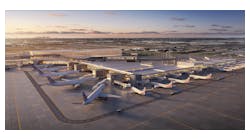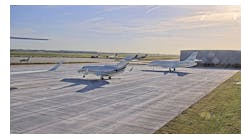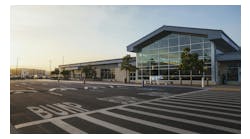Most of you, by now, have probably heard about fuel cells and fuel cell technology. And if you are an environmental freak like me ... you are rather excited and hopeful about it. From news reports, business journals and even our President, it is predicted that hydrogen-powered fuel cell vehicles may soon be part of our everyday lives.
A quick refresher for those of you who aren't "tech geeks:" A fuel cell is an electrochemical energy conversion device. It converts the chemicals hydrogen and oxygen into water, and in the process it produces electricity. Though a battery is also an electrochemical device, all of its chemicals are stored inside and it either goes dead or needs to be recharged. With a fuel cell, chemicals constantly flow into the cell so it never goes dead.
These existing and emerging fuel cell technologies are extremely important to all walks of life because according to Brian Weeks, associate director for Gas Technology Institute's Hydrogen Energy Systems group, if one day we replace internal combustion engines with these technologies, we will have a "transportation system based upon pollution-free, renewable, abundant fuel that is not dependent upon politically unreliable foreign countries.
In fact, for both the commercial and military ground support industry, fuel cell technology is already a reality. It was recently announced that the Ford Motor Company, the Florida Department of Environmental Protection (DEP), TUG Technologies Corporation, Delta Airlines and the Greater Orlando Aviation Authority (GOAA) formed a partnership that will put two hydrogen-fueled airport tow tractors into service at Orlando Airport.
The M1A tow tractor uses a Ford Power Products 4.2-liter, V-6 industrial engine converted and calibrated to operate on gaseous hydrogen. The near-zero operational emissions from the hydrogen engine makes it attractive for airport environments, where emissions levels are strictly regulated due to the fact that they are one of the largest sources of localized air pollution.
Enova Systems, a manufacturer and developer of electric hybrid and fuel cell drive systems, will supply its 120kW HybridPower? drive system and its fuel cell power management suite to the DoD Fuel Cell Test and Evaluation Center. These components will be used in fuel cell demonstrations at select Air Force Bases and civil airports in the US, in conjunction with the United States Air force Advanced Power Technology Office, Warner-Robins AFB, GA. And in 2004, Enova integrated its HybridPower 120kW drive system, with a Capstone micro turbine in another MB-4 tow tractor and a fuel cell hybrid "step" van for the US Air Force which is now in operation at Hickman AFB in Honolulu, Hawaii.
As Brian Week's states, "...Embracing hydrogen has become a societal issue in which government has made the decision that economic, environmental and national security issues dictate the formation of a robust hydrogen industry. Airports and the GSE industry appear destined to play an important role in this process."
I wish all of you a warm and wonderful summer...thanks for reading!




